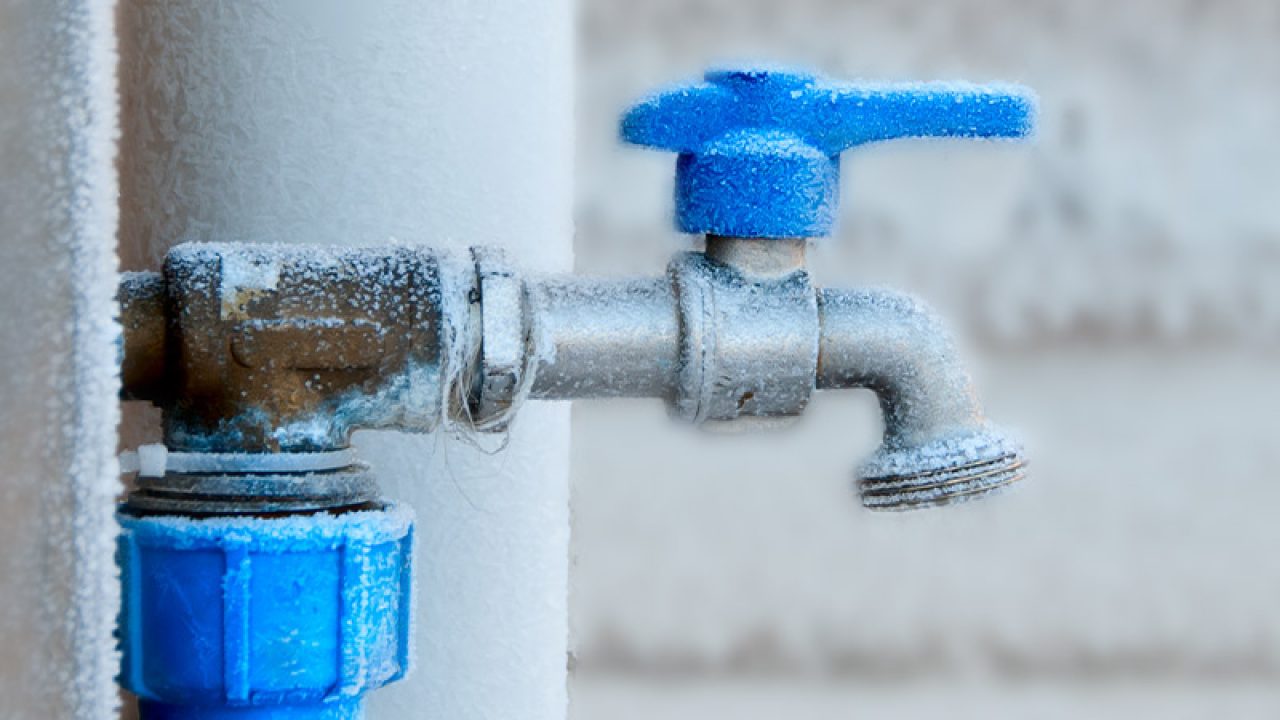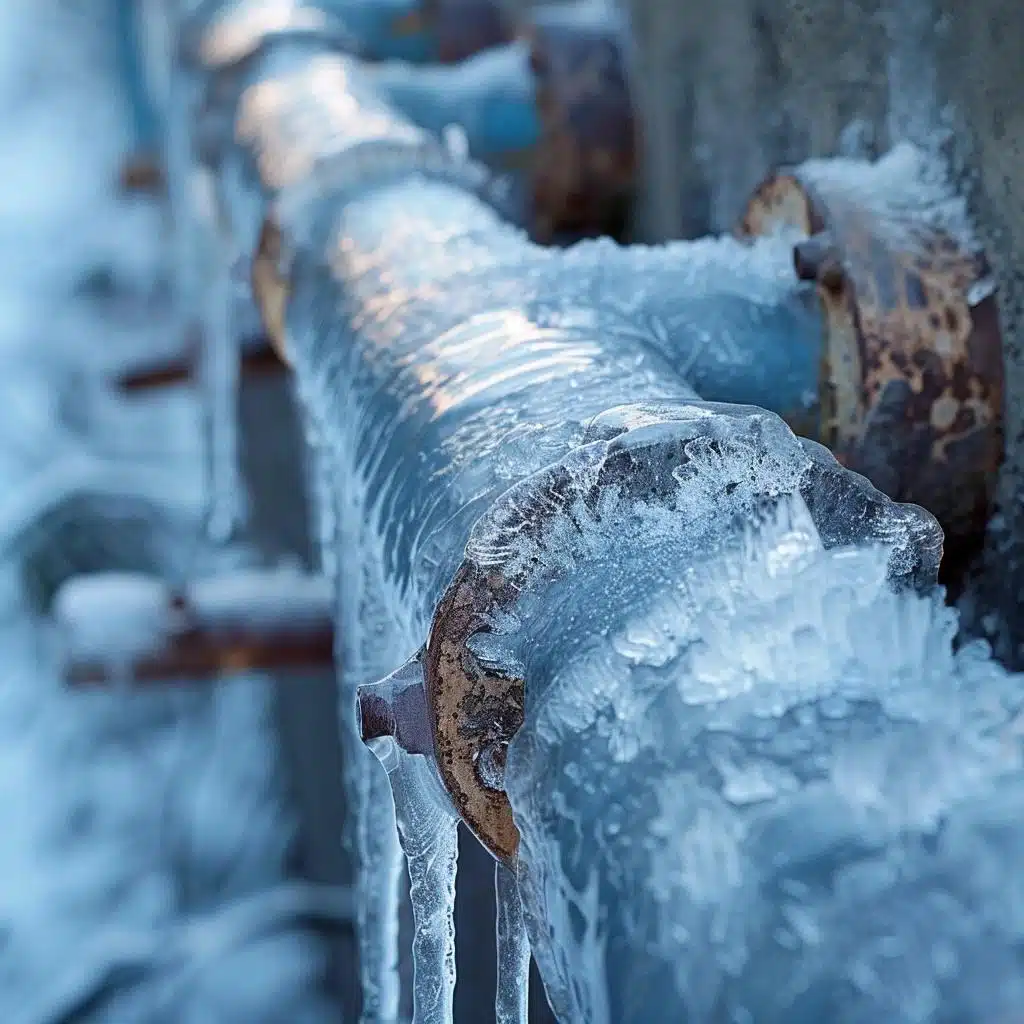Protect Against Frozen Pipes in Winter: Expert Strategies
Protect Against Frozen Pipes in Winter: Expert Strategies
Blog Article
The author is making several good pointers relating to Preventing and dealing with frozen pipes overall in this content below.

Winter can damage your pipes, specifically by freezing pipelines. Right here's how to stop it from happening and what to do if it does.
Introduction
As temperatures decrease, the threat of frozen pipelines boosts, potentially bring about pricey fixings and water damages. Comprehending exactly how to stop icy pipes is essential for property owners in cool climates.
Avoidance Tips
Protecting at risk pipes
Wrap pipes in insulation sleeves or make use of warm tape to shield them from freezing temperatures. Focus on pipelines in unheated or external locations of the home.
Home heating methods
Maintain indoor rooms effectively heated, specifically areas with pipes. Open closet doors to enable warm air to distribute around pipelines under sinks.
Exactly how to determine frozen pipelines
Seek lowered water flow from faucets, unusual odors or sounds from pipes, and noticeable frost on subjected pipelines.
Long-Term Solutions
Structural modifications
Consider rerouting pipelines far from exterior walls or unheated locations. Include additional insulation to attics, basements, and crawl spaces.
Updating insulation
Purchase top quality insulation for pipes, attic rooms, and wall surfaces. Correct insulation aids preserve constant temperatures and lowers the danger of icy pipelines.
Protecting Outside Pipes
Yard hose pipes and outdoor faucets
Detach and drain pipes yard pipes before winter months. Set up frost-proof spigots or cover exterior faucets with protected caps.
Comprehending Frozen Pipelines
What causes pipelines to freeze?
Pipelines ice up when subjected to temperature levels listed below 32 ° F (0 ° C) for prolonged periods. As water inside the pipelines freezes, it increases, putting pressure on the pipeline wall surfaces and possibly triggering them to break.
Risks and problems
Frozen pipes can cause water system disruptions, building damage, and expensive repair work. Burst pipes can flood homes and cause extensive architectural damages.
Signs of Frozen Pipes
Recognizing icy pipes early can prevent them from breaking.
What to Do If Your Pipelines Freeze
Immediate activities to take
If you suspect frozen pipelines, keep taps open to eliminate pressure as the ice melts. Make use of a hairdryer or towels taken in warm water to thaw pipelines slowly.
Final thought
Preventing frozen pipes requires aggressive actions and fast feedbacks. By comprehending the causes, indicators, and preventive measures, house owners can secure their plumbing throughout cold weather.
Helpful Tips to Prevent Frozen Pipes this Winter
UNDERSTANDING THE BASICS: WHY PIPES FREEZE AND WHY IT’S A PROBLEM
Water freezing inside pipes is common during the winter months, but understanding why pipes freeze, and the potential problems it can cause is crucial in preventing such incidents. This section will delve into the basics of why pipes freeze and the associated problems that may arise.
THE SCIENCE BEHIND FROZEN PIPES
When water reaches freezing temperatures, it undergoes a physical transformation and solidifies into ice. This expansion of water as it freezes is the primary reason pipes can burst. As the water inside the pipe freezes, it expands, creating immense pressure on the walls. If the pressure becomes too great, the pipe can crack or rupture, leading to leaks and water damage.
FACTORS THAT CONTRIBUTE TO PIPE FREEZING
Low Temperatures: Extremely cold weather, especially below freezing, increases the risk of pipes freezing. Uninsulated or Poorly Insulated Pipes: Pipes located in unheated areas, such as basements, crawl spaces, or attics, are more prone to freezing. Insufficient insulation or lack of insulation altogether exacerbates the problem. Exterior Wall Exposure: Pipes running along exterior walls are susceptible to freezing as they encounter colder temperatures outside. Lack of Heating or Temperature Regulation: Inadequate heating or inconsistent temperature control in your home can contribute to frozen pipes. PROBLEMS CAUSED BY FROZEN PIPES
- Pipe Bursting: As mentioned earlier, the expansion of water as it freezes can cause pipes to burst, resulting in significant water damage.
- Water Damage: When pipes burst, it can lead to flooding and water damage to your property, including walls, ceilings, flooring, and personal belongings.
- Structural Damage: Prolonged exposure to water from burst pipes can compromise the structural integrity of your home, leading to costly repairs.
- Mold and Mildew Growth: Excess moisture from water damage can create a favorable environment for mold and mildew growth, posing health risks to occupants.
- Disrupted Water Supply: Frozen pipes can also result in a complete or partial loss of water supply until the issue is resolved.
WHY CERTAIN PIPES ARE MORE PRONE TO FREEZING
- Location: Pipes located in unheated or poorly insulated areas, such as basements, crawl spaces, attics, or exterior walls, are at higher risk of freezing.
- Exterior Pipes: Outdoor pipes, such as those used for irrigation or exposed plumbing, are particularly vulnerable to freezing as they are directly exposed to the elements.
- Supply Lines: Pipes that carry water from the main water supply into your home, including the main water line, are critical to protect as freezing in these lines can affect your entire plumbing system.
- Underground Pipes: Pipes buried underground, such as those connected to sprinkler systems or outdoor faucets, can be susceptible to freezing if not properly insulated.
https://busybusy.com/blog/helpful-tips-to-prevent-frozen-pipes-this-winter/

I'm very serious about How to prepare your home plumbing for winter weather and I hope you enjoyed reading the piece. Are you aware of someone else who is inquisitive about the topic? Feel free to promote it. Thanks so much for going through it.
Book Your Service Report this page